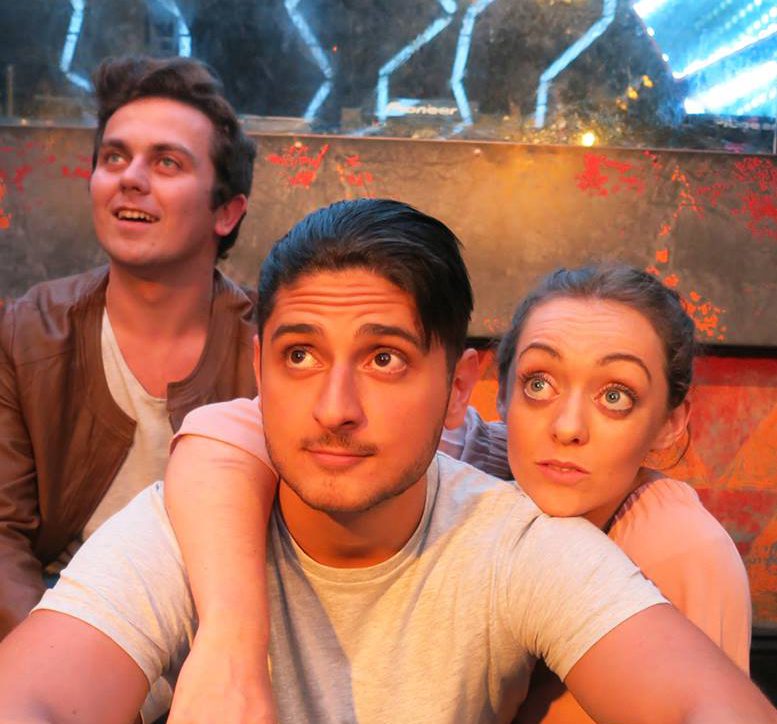Hidden in the backroom of Potts Point World Bar, the Subtlenuance Theatre Company is unravelling the social experiments of the 1960s.
Behind a red neon sign flashing ‘gym’, an ensemble of nine – playing actors known as confederates – explores the impact these experiments had on human behaviour.
Directed and written by Australian Paul Gilchrist, One Way Mirror is billed as a study of “psychology in the decade of the psychedelic”. But it raises more questions than it answers.
The play starts with the case of convicted war criminal and Nazi SS officer, Otto Adolf Eichmann. Eichmann was responsible for transporting Jews during the Holocaust. During his trial, Eichmann argued that he had no power in the Nazi hierarchy and was just following orders. And so the first question is raised – do humans behave differently under instruction?
Matthew Abotomey played the character with a subtle and natural humour. We later discover that Eichmann inspired social psychologist, Dr Stanley Milgram, and his experiment The Obedience to Authority. But it took 15 minutes for this link to be revealed… which felt a little too long.

What follows is the eight “confederates” taking part in a variety of similar social experiments like, “Please Pass the Salt”. In each case, there’s a subject who’s unaware the others are actors. This mirrors how Dr Milgram actually conducted the experiments in 1961, at the University of Yale in the U.S.
The natural flow of the discussion on stage makes the story relatable – you can imagine having similar conversations with your own friends.
For the audience though, it’s hard going through the stages of each experiment . The subject matter is intense and keeping track of the play’s timeline would be difficult without the theatre’s visual displays.
One Way Mirror is on for a limited time only. Without giving anything away, it does comes up with a single answer – but it leaves you in no doubt that human behaviour will always be examined.
– Story, Emma Kosowski – Editing, Sue Stephenson


